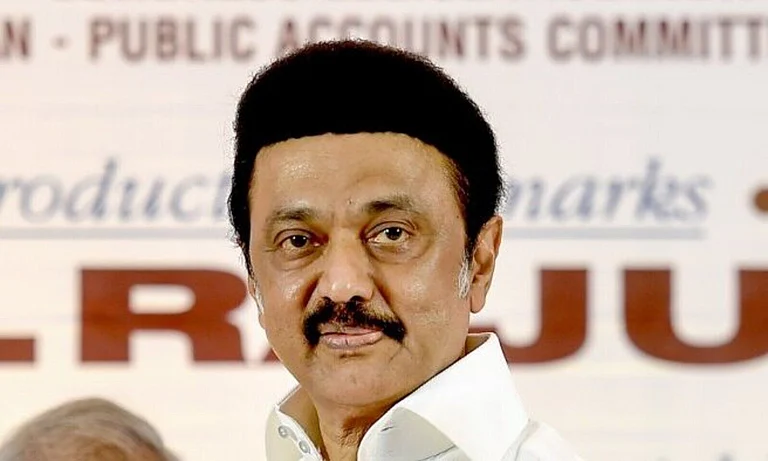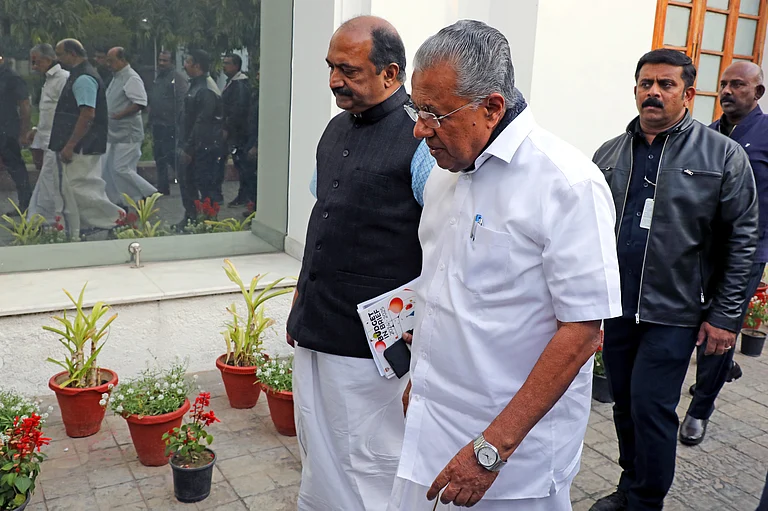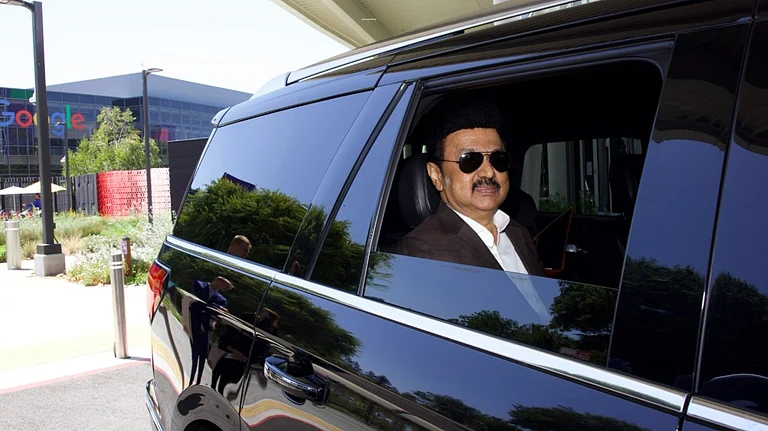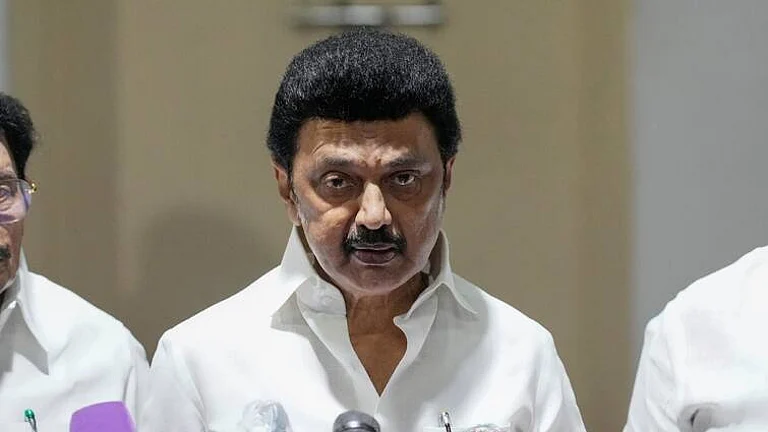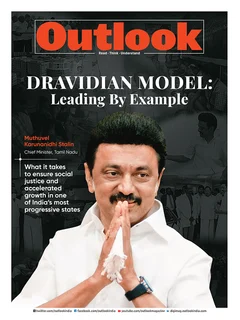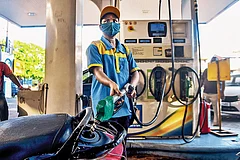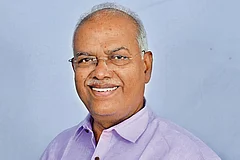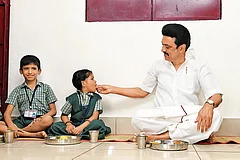M.K. Stalin is the Chief Minister of Tamil Nadu since May 2021. He is the President of India’s oldest regional political party, Dravida Munnetra Kazhagam (DMK) since 2018. In 1973, Stalin was elected to the general council of the DMK. He was jailed for a year in 1976 for protesting against the Emergency. In 1980, he launched the youth wing of the DMK. Stalin made his legislative debut in 1989 when he was elected from the Thousand Lights constituency in Chennai. The present tenure is his seventh term as a member of the Legislative Assembly. In 1996, as Chennai’s first directly elected mayor, he piloted the Singara Chennai (Beautiful Chennai) project that vastly improved Chennai’s infrastructure.
He has been an effective campaigner for social justice and federal balance. He is in the forefront of the move to secure the rights of states from the overreach of the Union Government. Stalin is the fulcrum of the opposition unity in India. In the political alliance -INDIA- Stalin plays a key role of ironing out the differences among the various constituent parties to work out a cohesive political narrative for the 2024 General Elections.
Excerpts from an exclusive interview he gave to A S Panneerselvan
What were the key challenges when you came to power in 2021?
The Dravida Munnetra Kazhagam (DMK) government took over at a critical time the second wave of Covid. We had before us the most challenging task of saving people’s lives. Within a week, we managed everything including the oxygen shortage and restored the normal life of the people.
The Dravidian Model aims to ensure that rural residents have equitable access to amenities such as higher education, employment opportunities, healthcare, and transportation, similar to those available to urban dwellers
However, due to the mismanagement and corruption of the previous government, the economic development of Tamil Nadu and the financial condition of the state had severely deteriorated.
The fundamental structure of Tamil Nadu was in shambles as the AIADMK rulers were subservient to the central government which was snatching away the rights of the state. Our goal and aim of changing these conditions and making Tamil Nadu the number one State once again began with challenges. Tamil Nadu had successfully faced those challenges and today boasts of many achievements.
What was the status of Tamil Nadu, looking at various social indicators, when the DMK was voted in and what are the visible changes your government has brought in during the last three years?
Education, healthcare, infrastructure, and economy are the four aspects that measure the growth of a state.
From school education to higher education, Tamil Nadu is in the forefront. Schemes like Illam Thedi Kalvi, Chief Minister’ Breakfast Scheme, Pudhumai Penn Thittam have increased the number of school students and those going for higher education. It can be said with certainty that the ‘Tamizh Pudhalvan’ scheme introduced in the current budget for male students will also yield good results. The All-India Ranking will prove how well Tamil Nadu excels in the framework of higher education. Tamil Nadu has the highest number of institutions (19) among the top 100 institutions of higher learning in the country.
Tamil Nadu has the distinction of being the ‘Medical Capital of India’ as far as the health infrastructure is concerned. Tamil Nadu ranks second in the country in terms of healthcare to the people. Schemes like Makkalai thedi Maruthuvam and Innuyirai Kaapom have shown the importance of human life.
Tamil Nadu has made several advances in industrial development in the last three years and has become the third largest State in India. Tamil Nadu has emerged as the number one exporter of electronic goods in the financial year 2023. Tamil Nadu has jumped from 14th position to third position in the list of States in Ease of Doing Business Rankings during our tenure. We have made great strides in new investments, new industries, and jobs. Tamil Nadu alone accounts for 40 percent of the total female workforce in India. We are building economic growth towards the USD 1 trillion target with balanced growth for all parts of the state and growth with gender equality.
Over the past three years, the Dravidian Model Government has significantly advanced Tamil Nadu’s progress, elevating it from a state where development was obscure and hard to find to a state where progress is clearly visible
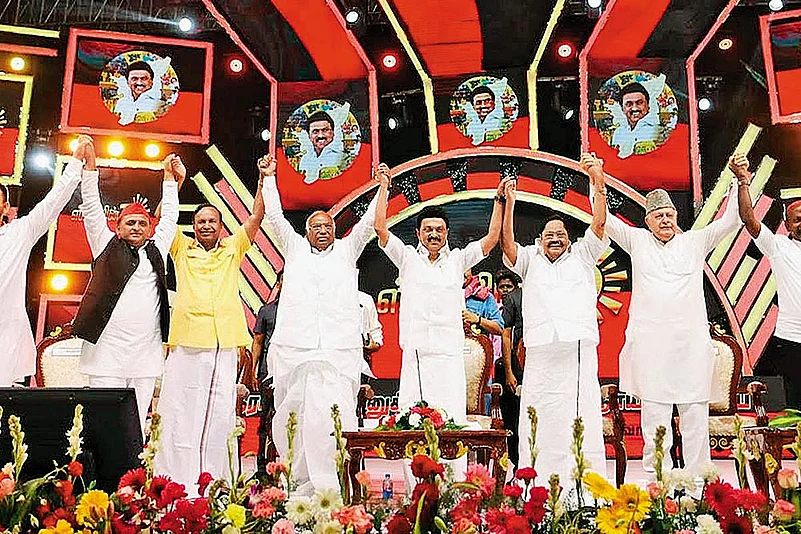
Could you explain how the Dravidian Model is different from the Gujarat Model and how it is impacting our growth trajectory?
The Dravidian model is a unique model that cannot be compared to any other model. The foundation was laid a hundred years ago during the Justice Party government. It advocated communal reservation, education for all communities, employment, and women’s suffrage on the basis of social justice and egalitarian development. Perarignar Anna and Thalaivar Kalaignar carried forward this balanced social justice-based development whenever DMK came to power from 1967 onwards. We continue to implement it now under the name of Dravidian Model. The Dravidian Model is all about equality - about not just being for a particular community, a particular region or a particular gender, but a model that implements education, infrastructure, employment and industrial investment on a wide scale and implements schemes to bridge the disparity gap.
The Dravidian model aims to ensure that rural residents have equitable access to amenities such as higher education, employment opportunities, healthcare, and transportation, similar to those available to urban dwellers.
‘Everything for all’ is the simplest definition of the Dravidian Model!
2024 marks the fiftieth anniversary of the DMK passing the momentous resolution on State Autonomy following the recommendations of the Rajamannar Committee recommendation. How do you look at the hyper-centralisation over the last 50 years?
The unity of India, with its diversity, multilingual and multicultural people, is based on the federal ideology. The state government is the one which meets the people directly and is in a position to implement schemes for the people. Therefore, Thalaivar Kalaignar, who took over as Chief Minister in 1969, insisted that more powers should be given to the states.
In 1974, he passed the State Autonomy Resolution in the Tamil Nadu Legislative Assembly after considering the recommendations of the Justice Rajamannar Committee. The DMK’s firm stand is autonomy in the state and federalism in the centre.
On the contrary, the Union government that is in power in Delhi today takes away the rights of the state government. Nearly 50 years ago, the powers in the state list such as education and health were transferred to the Union list. In the last decade under BJP rule, there has been a significant centralization of power, with the implementation of policies such as NEET, the UDAY electricity scheme, and GST, which have curtailed the autonomy of states. This is a gross act against democracy and the Constitution. That is why Tamil Nadu, especially the DMK continues to assert the rights of the States and the principle of State Autonomy.
The unity of India, with its diversity, multilingual and multicultural people, is based on the federal ideology
DMK has always been keen on social investment such as education, health, women’s welfare among others. There is an attempt to categorise these initiatives as freebies and undermine their social relevance. How do you handle such criticism?
Such criticism is not new to the DMK. They are stale now. During the Kalaignar terms in government, bus passes were given to +2 students following my insistence as a legislator. At the time, it was criticized as freebies. But the rural poor students who got those bus passes have completed their higher education and are now in high positions in the IT sector in India and abroad. The tax paid by them, and their families goes to the Union exchequer. What Kalaignar government gave on that day was not free; it was a small investment to nurture a generation! We feel the benefits of it today!
The schemes like nutritious meal with eggs, colour TV, electricity for farmers, are social welfare schemes with a long-term vision. The free travel scheme for women in city buses has saved every woman up to Rs 800 per month, converted them into savings and instilled confidence about going for work, self-employment, and interviews.
With women making up more than half of society, it has been well-received as a peaceful revolution for social change. While other states follow suit, the short-sighted people who have no clarity or understanding of the social situation show their ignorance by saying that such schemes are free.
With faulty GST roll-out and the increased problems in the revenue sharing where the Union is undermining the performing states, how do you devise your plans and activate schemes despite these financial difficulties?
When the northern districts including Chennai and southern districts like Tirunelveli and Thoothukudi faced calamities due to the Michaung cyclone and rain floods in December 2023, I met Prime Minister Modi personally and urged him to release the disaster relief fund; yet they have not done it till now.
The State Government itself contributed Rs.6000 to poor families hit by the cyclone. For every rupee of tax paid by Tamil Nadu to the Union Government, only 29 paise is returned as devolution by the Union Government. Despite facing a severe economic crisis, we are relentless in implementing schemes for the welfare of the people.
We take care of each of the projects on a priority basis with the revenue from the Registration Department, vehicle registration revenue, new investments, etc. available to the State Government. Tamil Nadu is coping with this because of the improved economic situation in a span of three years.

You and the DMK are the fulcrum of the unity of the opposition in the country? What are the challenges? Will the decision of Nitish Kumar to walk out of INDIA Alliance hurt the prospects of the alliance?
At the inaugural meeting of the INDIA Alliance, I had stressed that seat-sharing should be done keeping in mind the strong parties in their respective states. Though Nitish Kumar has pulled out for personal reasons, the INDIA Alliance is strong in his Bihar state and seat-sharing is going on smoothly. Similarly, national parties and state parties are working diligently, making their own contributions wherever possible. When it comes to the electoral arena, there are certain challenges for all sides. There is no challenge for the INDIA Alliance in winning the hearts of the people.
How do you look at agencies such as ED, IT among others becoming political tools of the Union Government and the democratic deficit it is causing to India?
The opposition needn’t say that the BJP government at the Centre is using independent investigative agencies as its puppet. People have started saying it.
The Enforcement Directorate, Income Tax Department and CBI have filed cases against ruling parties in non-BJP ruled states. There is no action on corruption complaints in BJP-ruled states. If an opposition leader, who was already accused of corruption, joins the BJP, he is suddenly presented as a clean person. People have understood that the BJP has a ‘miracle washing machine’ that can immediately make him saintly enough to reward him a minister’s post.
As the election approaches, the crackdown on non-BJP leaders will be more intense. The parties in the India coalition have the strength to face it. It will be an opportunity to expose the BJP in its entirety.
No one can permanently rule in a democracy… the problems faced by farmers, labourers, small traders, students, minorities, and Scheduled Castes will work in favour of India Alliance
DMK has been critical of the office of the Governor for decades. DMK has been either in power or it has been the principal opposition party since 1967. How does the state of Tamil Nadu realise its poltical aspirations despite Governors who play spoil sport?
The DMK has made it repeatedly clear that the appointed Governor does not have the power to override the elected government. From the days of Perarignar Anna and Muthamizh Arignar Kalaignar, we have been insisting that the post of Governor should be abolished and if the post of Governor is necessary, it should be made through the selection process with the participation of the State Government. In recent years, we have seen Governors behaving like politicians not only in Tamil Nadu but also in states like Kerala, Telangana, West Bengal, and Punjab. We faced and defeated the excesses of the Governor’s powers in the Assembly. We are also fighting the legal battle in court. We will defeat the conspiracy of the Union government to run a parallel government with governors, without any respect for the Constitution and to undermine the values of the democracy.
What are the factors that may help INDIA Alliance win the 2024 general elections? The BJP is talking about its invincibility which somehow resembles the “Shining India” argument of 2004. Is it truly possible to defeat the Modi-juggernaut?
No one can permanently rule in a democracy. In 2004, the BJP declared ‘India is shining’. It wanted to regain power. But the election results turned out to be the opposite. In the 10 years of BJP rule, no one in India except the big industrialists have been at peace. The problems faced by farmers, labourers, small traders, students, minorities, and Scheduled Castes will work in favour of the INDIA Alliance. People are clearer about who should not come back than who should become the Prime Minister. That will be visible in the election results.
What is the difference between M.K. Stalin, the Chief Minister of Tamil Nadu and M.K. Stalin, the President of the DMK?
The hard work of party workers and trust of the people that made M K Stalin the party president also entrusted him with the responsibility of the post of the Chief Minister. After receiving the victory certificate, I made a promise at the Kalaignar Memorial that it would be a “government that will leave all those who voted for it satisfied and make all those that didn’t vote for us regret their decision.” As Chief Minister Stalin, I am working towards fulfilling the promise fully while continuing to function as a party president in such a way that the DMK government will continue in power.
Do you think the Union Government is targeting you due to your relentless attack on the BJP and attempts to mobilise a national alliance against it?
Protests and attacks are not new to me or the DMK. Whenever democracy is in danger, the Dravida Munnetra Kazhagam is at the forefront of the struggle to protect it.
MORE FROM THIS ISSUE
Late Prime Minister Indira Gandhi said that Kalaignar Karunanidhi was firm in his stand-whether he supports or opposes a particular issue. I am Kalaignar’s son. I am committed to supporting the good that needs to be supported. I am also determined to oppose the evils that need to be resisted.








